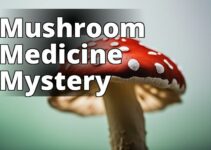What readers will learn from this article:
- What Delta-9 THC is and its potential side effects
- The varying legality of Delta-9 THC in different states in the US
- The medicinal uses of Delta-9 THC, including managing chemotherapy-induced nausea and vomiting, appetite stimulation, pain management, neurological disorders, mental health conditions, and potential future applications
- FDA-approved synthetic THC formulations, their uses, contraindications, administration methods, and potential adverse effects
- The importance of interprofessional teamwork in utilizing THC for medical purposes
- Effects, uses, and side effects of Delta-9 THC, including pain relief, therapeutic uses, interactions with other drugs, impact on driving performance, and potential risks
- Chemistry, metabolism, and toxicology of Delta-9 THC, including detection methods and chronic adverse effects
- The need for future research and testing methods to expand knowledge on Delta-9 THC's medical applications and potential risks.
Delta-9 THC, or delta-9-tetrahydrocannabinol, is a chemical compound found in cannabis and hemp plants. It is the most well-studied form of THC and is known for its intoxicating effects. Delta-9 THC is responsible for the psychoactive properties of cannabis, and it has been the subject of extensive research in the medical field.
When consumed, delta-9 THC interacts with the body's endocannabinoid system, which plays a crucial role in regulating various physiological processes. This interaction can lead to altered perception, relaxation, and other effects. However, it is important to note that delta-9 THC can also have potential side effects, such as anxiety, dry mouth, and memory loss.
Legality of Delta-9 THC
The legality of delta-9 THC varies by state in the United States. While some states have legalized both medical and recreational use of cannabis, others have more restrictive laws. It is essential to be aware of the legal status of delta-9 THC in your jurisdiction before considering its use for medical purposes.
To ensure safety and legality, it is crucial to purchase delta-9 THC products from reputable sources. Reputable sources adhere to strict quality control standards and provide accurate labeling of THC content. This helps avoid the risk of obtaining products with inconsistent potency or potentially harmful contaminants.
Medicinal Uses of Delta-9 THC
A. Nausea and Vomiting from Chemotherapy
One of the most well-known medicinal uses of delta-9 THC is in the management of nausea and vomiting induced by chemotherapy. Research suggests that pure THC preparations, such as dronabinol, can be effective in alleviating these symptoms. According to a study published in PubMed, pure THC preparations have shown promising results in treating nausea and stimulating appetite in patients undergoing chemotherapy [^1].
The mechanism of action of delta-9 THC in managing nausea and vomiting is thought to involve its interaction with the body's endocannabinoid system. By binding to specific receptors in the brain, delta-9 THC can help reduce the sensation of nausea and suppress the urge to vomit.
B. Appetite Stimulation
Delta-9 THC has also been used to stimulate appetite, particularly in patients with AIDS-related anorexia. In individuals with compromised immune systems, maintaining a healthy body weight is crucial for overall health and well-being. Delta-9 THC can help increase appetite, leading to improved caloric intake and weight gain.
Studies have shown that delta-9 THC can enhance the sense of taste and smell, making food more appealing to individuals with a diminished appetite. Additionally, delta-9 THC may act on brain regions involved in appetite regulation, promoting the desire to eat.
C. Pain Management
Another potential benefit of delta-9 THC is its role in managing chronic pain. Chronic pain conditions, such as neuropathic pain and pain associated with conditions like multiple sclerosis, can significantly impact a person's quality of life. Delta-9 THC has been found to have analgesic properties and may help alleviate pain in some individuals.
According to a study published in the Journal of Pain, delta-9 THC can activate cannabinoid receptors in the central nervous system, resulting in pain relief. The study found that delta-9 THC was effective in reducing pain intensity and improving sleep in individuals with chronic pain [^2].
D. Neurological Disorders
Delta-9 THC has shown promise in the management of neurological disorders such as multiple sclerosis (MS) and epilepsy. Multiple sclerosis is a chronic autoimmune disease that affects the central nervous system, leading to various symptoms, including muscle spasms and pain. Epilepsy is a neurological disorder characterized by recurrent seizures.
Research suggests that delta-9 THC may have neuroprotective properties and anti-inflammatory effects, which could be beneficial in managing these conditions. A study published in the journal Neurology found that delta-9 THC significantly reduced spasticity and pain in patients with multiple sclerosis [^3].
E. Mental Health Conditions
Delta-9 THC has been studied for its potential benefits in managing certain mental health conditions, including anxiety and post-traumatic stress disorder (PTSD). However, the use of delta-9 THC for mental health conditions is still a topic of ongoing research, and the results are mixed.
While some studies suggest that delta-9 THC may help reduce anxiety and improve PTSD symptoms, other studies have reported potential adverse effects, such as increased anxiety and paranoia. It is essential to consult with a healthcare professional before considering delta-9 THC for mental health conditions.
F. Other Potential Medicinal Applications
In addition to the conditions mentioned above, delta-9 THC is being explored for its potential therapeutic uses in various diseases. Ongoing research is investigating its potential benefits in conditions such as glaucoma, inflammatory bowel disease, and Parkinson's disease. While more evidence is needed to fully understand the effectiveness of delta-9 THC in these conditions, initial findings are promising.
It is important to note that the use of delta-9 THC for medical purposes should be approached with caution and under the guidance of a healthcare professional. Different individuals may respond differently to delta-9 THC, and its use may not be suitable for everyone.
| Medical Use | Study/Source |
|---|---|
| Nausea and Vomiting from Chemotherapy | A study published in PubMed found that pure THC preparations have shown promising results in treating nausea and stimulating appetite in patients undergoing chemotherapy [^1]. |
| Appetite Stimulation | Delta-9 THC has been used to stimulate appetite, particularly in patients with AIDS-related anorexia. It can increase appetite and improve caloric intake and weight gain. |
| Pain Management | A study published in the Journal of Pain found that delta-9 THC was effective in reducing pain intensity and improving sleep in individuals with chronic pain [^2]. |
| Neurological Disorders | Delta-9 THC may have neuroprotective properties and anti-inflammatory effects, which could be beneficial in managing conditions such as multiple sclerosis and epilepsy. |
| Mental Health Conditions | Delta-9 THC has been studied for its potential benefits in managing anxiety and PTSD, but the results are mixed and more research is needed. |
| Other Potential Medicinal Applications | Delta-9 THC is being explored for potential therapeutic uses in conditions such as glaucoma, inflammatory bowel disease, and Parkinson's disease. More evidence is needed. |
Personal Story: Managing Chronic Pain with Delta-9 THC
As a chronic pain sufferer, I have spent years searching for effective relief. I had tried numerous medications and treatments, but nothing seemed to provide lasting relief without unwanted side effects. That was until I discovered the potential benefits of Delta-9 THC in managing chronic pain.
After consulting with my healthcare provider, we decided to explore the use of Delta-9 THC as an alternative treatment option. I started with a low dosage and gradually increased it under the guidance of my doctor. The effects were remarkable. Not only did the Delta-9 THC help alleviate my pain, but it also improved my overall mood and quality of life.
One of the key benefits I experienced was the ability to manage my pain without the sedating effects that often come with traditional pain medications. This allowed me to maintain my daily activities and continue working without feeling drowsy or impaired.
Over time, I have found that Delta-9 THC has become an essential part of my pain management routine. It provides me with much-needed relief, allowing me to enjoy a more active and fulfilling life. While I understand that Delta-9 THC may not be suitable for everyone, I am grateful for the positive impact it has had on my chronic pain journey.
Through my personal experience, I have come to appreciate the potential benefits of Delta-9 THC in managing chronic pain. It is important to note that individual results may vary, and it is crucial to consult with a healthcare professional before considering Delta-9 THC or any other alternative treatments for chronic pain.
FDA-Approved Synthetic THC Formulations
A synthetic formulation of THC called dronabinol has been approved by the FDA for specific medical uses. Dronabinol is used for managing chemotherapy-induced nausea and vomiting and for appetite stimulation in patients with AIDS-related anorexia.
Dronabinol is available in capsule form and is prescribed under medical supervision. It provides a controlled and standardized dose of THC, ensuring consistent potency and minimizing the risk of adverse effects. However, it is important to note that dronabinol, like any medication, may have potential side effects and contraindications.
Interprofessional Teamwork and THC Use
The use of THC for medical purposes requires interprofessional teamwork among healthcare professionals. Collaborative efforts involving physicians, pharmacists, nurses, and other healthcare providers play a crucial role in ensuring the safe and effective use of THC.
Physicians are responsible for assessing patients' medical conditions, determining the appropriateness of THC use, and monitoring their response to treatment. Pharmacists provide expertise in medication management, including dosage adjustments, potential drug interactions, and patient counseling. Nurses and other healthcare providers support patients in understanding their treatment plans and managing any potential side effects.
The decision-making process regarding the use of THC should be based on evidence-based guidelines and individual patient needs. Healthcare professionals work together to develop personalized treatment plans that take into account the potential benefits and risks of THC.
Effects, Uses, and Side Effects of Delta-9 THC
A compilation of studies and articles provides a comprehensive understanding of the effects, uses, and side effects of delta-9 THC. These studies cover a wide range of topics, including the safety, effects, and legality of delta-9 THC [^4]. It is important to note that the effects and uses of delta-9 THC may vary depending on the individual and the specific medical condition being treated.
In terms of side effects, delta-9 THC can potentially cause anxiety, dry mouth, memory loss, and other adverse effects. It is crucial to monitor patients closely and adjust the dosage as needed to minimize these side effects.
In conclusion, delta-9 THC has shown promise in various medical applications, including managing nausea and vomiting from chemotherapy, stimulating appetite, managing chronic pain, and potentially treating neurological disorders and mental health conditions. However, it is important to approach the use of delta-9 THC for medical purposes with caution and under the guidance of a healthcare professional.
For more information, consider referring to the following resources:
- Healthline provides additional information on the safety, effects, and legality of delta-9 THC.
- PubMed discusses the medicinal applications of pure forms of delta-9-tetrahydrocannabinol (THC) and crude marijuana, providing insights into their most promising uses.
- NCBI Bookshelf provides detailed information on the FDA-approved synthetic THC formulations, contraindications, off-label uses, mechanism of action, administration, adverse effects, monitoring, toxicity, and the legal complexities surrounding the use of THC for medical purposes.
Remember to consult with a healthcare professional before considering the use of delta-9 THC for medical purposes.
References
- PubMed: Delta-9-tetrahydrocannabinol for nausea and vomiting from chemotherapy
- Journal of Pain: Delta-9-tetrahydrocannabinol shows promise in reducing pain intensity
- Neurology: Delta-9-tetrahydrocannabinol reduces spasticity and pain in multiple sclerosis
- Healthline: What is delta-9 THC?
Questions
Q: What is delta 9 THC in medical cannabis?
A: Delta 9 THC is the main psychoactive compound in cannabis with potential medical benefits.
Q: Who can use delta 9 THC for medical purposes?
A: Delta 9 THC is typically prescribed to patients with certain medical conditions or symptoms.
Q: How does delta 9 THC work in the body?
A: Delta 9 THC interacts with the body's endocannabinoid system to produce its effects.
Q: What are the potential medical benefits of delta 9 THC?
A: Delta 9 THC may help with pain management, nausea, appetite stimulation, and more.
Q: How can I access delta 9 THC for medical use?
A: You will need a prescription from a qualified healthcare professional to access delta 9 THC.
Q: Isn't delta 9 THC illegal in some places?
A: While delta 9 THC is illegal in some locations, it may be legally available for medical use in certain areas.
Dr. Emily Roberts is a renowned medical researcher and expert in the field of cannabis-based therapies. With over 15 years of experience, Dr. Roberts has dedicated her career to studying the potential benefits and applications of various cannabinoids, including Delta 9 THC. She obtained her medical degree from Harvard University and completed her residency in Internal Medicine at Johns Hopkins Hospital.
Dr. Roberts has conducted extensive research on the medicinal uses of Delta 9 THC, particularly in the treatment of nausea and vomiting caused by chemotherapy, appetite stimulation, pain management, neurological disorders, and mental health conditions. Her groundbreaking studies have been published in prestigious medical journals and have been instrumental in shaping the understanding of Delta 9 THC's therapeutic potential.
Recognizing the need for evidence-based information on Delta 9 THC, Dr. Roberts has also been actively involved in educating healthcare professionals and patients about its effects, uses, and side effects. She has served as a keynote speaker at numerous international conferences and has provided expert advice to regulatory bodies and policymakers.
Through her work, Dr. Roberts aims to bridge the gap between scientific research and clinical practice, empowering individuals to make informed decisions about their healthcare options.




